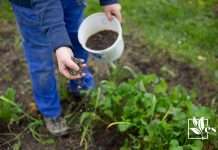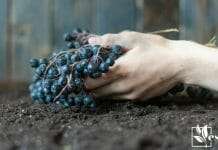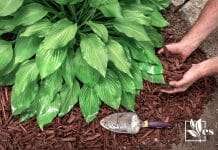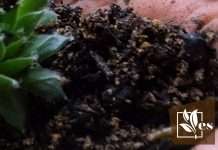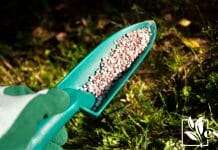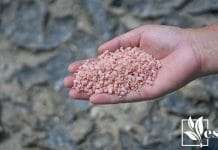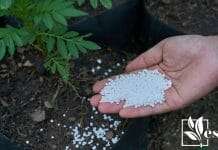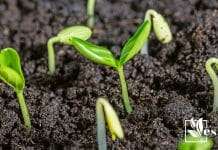As a gardener, I know the importance of enriching the soil to promote healthy plant growth. Cow manure is an excellent source of organic matter that can enhance the soil’s structure, increase its ability to hold water, and provide a slow-release source of nutrients for plants. However, knowing the right amount of cow manure to add to your garden is crucial to avoid over-fertilization, which can lead to excessive plant growth with poor flower and fruit development or even damage your plants. I want to share how much is just right for your soil.
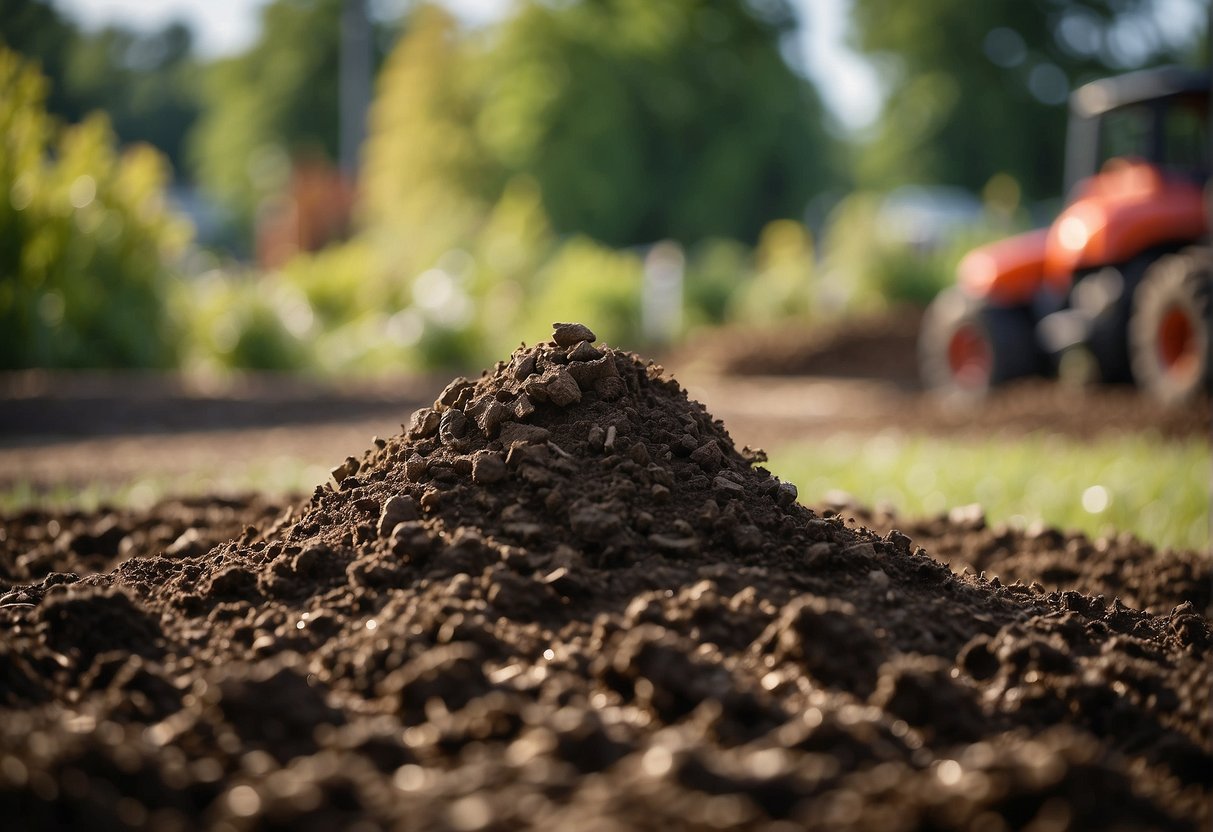
Through years of experience and research, I’ve found that a good general recommendation for applying composted cow manure to garden soil is (this quantity can slightly vary depending on manure source and soil conditions). For an average garden plot, you can use about 200 pounds of composted manure for every 100 square feet. This equates to an application rate of approximately 0.6 to 0.8 inches of manure over the plot surface. The key is to properly mix this manure into the top 6 to 9 inches of soil. For more specific soil types and different kinds of gardens, the amount and method of application can be adjusted.
It’s not only how much but also when and how you add cow manure to the soil that impacts garden success. I incorporate manure into my garden soil in the fall or at least several weeks before planting to allow time for the manure to integrate with the soil and reduce the potential for nutrient burn. Also, manure should be well-composted to minimize the risk of introducing pathogens into your garden and reduce the potential for burning plants with excess ammonia or nitrogen. With the right approach, cow manure can be a gardener’s valuable ally for a flourishing garden.
JUMP TO TOPIC
Composting Essentials
In my experience, composting is a crucial process for turning manure into a rich, organic fertilizer that significantly benefits the soil. It involves the decomposition of organic matter, which includes not only manure but also bedding and other farmyard waste, to create compost that enriches the soil with nutrients and enhances its physical structure.
Understanding Composting Process
Composting is the natural breakdown of organic materials by microorganisms, into a substance called compost. This process requires managing four key elements:
- Microorganisms: These are the tiny beings that do the job of breaking down the matter. They include bacteria, fungi, and actinomycetes.
- Aeration: Turning the compost pile allows essential oxygen to reach the microorganisms.
- Moisture: The pile should be moist to touch. Microbes need water to live, but too much water is as bad as too little – it smothers the pile and stops the process.
- Temperature: The heat generated by the microbial activity helps decompose the material. The pile should reach between 130°F and 160°F to effectively decompose materials and destroy weed seeds and pathogens.
A balanced nutrient management plan includes both nitrogen-rich green materials and carbon-rich brown materials. Typically, these are green kitchen waste and brown yard waste.
Fresh manure should not be used directly on gardens as it can contain pathogens harmful to humans and can burn plants due to high ammonia levels.
Types of Manure for Composting
Different types of animal manure offer varying nutrient profiles and composting characteristics:
- Cow Manure: It is one of the best for composting as it has a balanced nutrient composition and is relatively low in nitrogen, decreasing the chance of burning plants.
- Chicken Manure: It is higher in nitrogen, making it a ‘hot’ manure, so it must be well-composted to avoid damaging plants.
- Pig Manure: Contains beneficial nutrients but needs careful management to avoid a foul odor and to ensure proper composting.
- Horse Manure: Often contains a lot of bedding, which helps to bulk out compost piles, but it can include a higher weed seed content.
Here’s my quick reference guide for composting cow manure, which has been a reliable method for me:
- Compost manure for at least six months before applying to the garden.
- Turn the compost pile regularly to encourage aeration and even decomposition.
- Monitor the temperature and moisture levels of the pile to maintain the ideal composting environment.
Always make sure to use composted manure, which has been appropriately aged and processed. Whether you’re working with manures from cows, chickens, or other farm animals, the key to successful composting lies in following best practices, balancing your inputs, and never shortcutting the crucial step of proper decomposition to create rich, organic, and safe compost for your garden.
Soil Fertility and Management
Maintaining soil fertility is crucial for robust plant health and growth. I always prioritize integrating cow manure into soil as both a fertilizer and soil amendment. The correct ratio of manure to soil and understanding its effects on plant growth can significantly improve the soil’s nutrient content, affecting the growth of a wide array of plants, from vegetables like tomatoes to root crops.
Incorporating Manure into Soil
💥 Adding Manure to Soil
For cow manure, a ratio of 1 part manure to 5 parts soil can be effective. I use a soil test to determine nutrient levels before application. Nutrient content, especially nitrogen (N), phosphorus (P), and potassium (K)—collectively known as NPK—is critical for soil health. Soil additives, like manure, not only supply these nutrients but also enhance the soil’s organic material content and improve the growing medium. If the ratio is off, I risk nutrient imbalance, causing harm to plants. A thoughtful approach, based on the existing nutrients in the soil and those contained in the manure, ensures I avoid such issues.
Effects on Plant Health and Growth
In my experience, proper manure application can lead to remarkable improvements in plant health and growth. The nutrients introduced via manure act as fertilizer, encouraging robust plant growth. When incorporating manure, it’s vital to understand its effects:
- Nitrogen is essential for leaf growth.
- Phosphorus aids in the development of roots and flowers.
- Potassium is crucial for overall plant health.
I’ve noted that vegetables such as tomatoes and root crops particularly benefit from the improved soil structure and additional nutrients, often resulting in an increased and healthier harvest. However, it is important to use composted manure to prevent the introduction of pathogens to the soil and plants. Balance and timing are key; I apply manure a few months before planting to allow it to break down correctly and synchronize nutrient availability with plant needs.
Practical Gardening Tips
In optimizing cow manure application, gardeners should aim for effective compost use and address common concerns to ensure soil health. Both personal experience and expert knowledge underline the importance of understanding the right ratios and safety precautions.
Optimizing Your Compost Use
Applying composted cow manure enhances garden soil texture, moisture retention, and aeration, promoting vigorous plant growth. From my practice, a balanced manure-to-soil ratio is pivotal. Too little, and you miss out on the benefits; too much, and you risk nutrient overload and potential harm to your plants. Here’s how I determine the optimal amount for my garden:
| Soil Type | Cow Manure | Frequency | Notes |
|---|---|---|---|
| Garden Soil | 1-inch layer | Once a year | Blend into top 6 inches of soil |
| Potting Soil | 1 part manure to 3 parts soil | As needed | Ideal for container plants |
When introducing cow manure, I always ensure it’s well-aged and free of pathogens and weed seeds to safeguard my garden’s health.
Addressing Common Concerns
Gardeners often worry about odor, chemical accumulation, and the potential for leaching into water systems. Through experience, I’ve learned that using well-composted manure minimizes these risks. It’s crucial to never use fresh manure near edibles because of these safety concerns.
In my garden, I strive to maintain balance, considering pH levels and the presence of cover crops to manage green waste. I also take care when applying manure to avoid direct contact with plants to prevent any chance of burning.
Through thoughtful application, the advantages of cow manure generally outweigh the drawbacks. It’s a sustainable resource that bolsters plant and soil health, which in turn supports the larger ecosystem. However, errors in application can lead to issues such as nutrient leaching, making careful calculation and observance of garden response essential practices for every green thumb.



